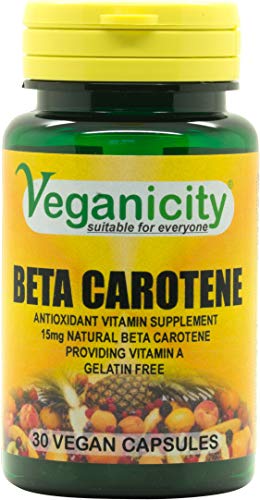Introduction to Beta-Carotene: What You Need to Know
Understanding Beta-Carotene
Beta-carotene is a pigment responsible for the vibrant orange, yellow, and green colours found in many fruits and vegetables. It is part of the carotenoid family and serves as a precursor to vitamin A in our bodies. We can find beta-carotene in foods like carrots, sweet potatoes, and spinach. This nutrient is not just about adding colour to our plate; it plays a significant role in our overall health.
Why Beta-Carotene Matters
As a powerful antioxidant, beta-carotene helps combat oxidative stress in our cells. Oxidative stress can lead to chronic illnesses, so maintaining a good intake of antioxidants is essential for keeping our bodies functioning optimally. By incorporating beta-carotene-rich foods into our meals, we support our body’s defence system.
Health Benefits of Beta-Carotene: How It Supports Your Wellbeing
Boosting Immune Function
One of the most notable benefits of beta-carotene is its ability to boost immune function. This nutrient supports the production of white blood cells, which are crucial for fighting off infections. When we consume enough beta-carotene, we help our bodies stay resilient against illnesses.
Supporting Eye Health
Beta-carotene is often associated with eye health. It converts to vitamin A, which is vital for maintaining good vision, especially in low-light conditions. Including beta-carotene rich foods in our diet can help reduce the risk of developing age-related macular degeneration, a common cause of vision loss.
Promoting Healthy Skin
Another benefit we can attribute to beta-carotene is its positive impact on skin health. Antioxidants in beta-carotene can help to maintain skin elasticity and promote a healthy glow. Regular consumption of beta-carotene may also reduce the risk of skin damage caused by sun exposure.
Sources of Beta-Carotene: Where to Find It in Your Diet
Fruits and Vegetables Packed with Beta-Carotene
If we want to increase our beta-carotene intake, we should focus on specific fruits and vegetables. Carrots are at the top of the list, but sweet potatoes, butternut squash, and pumpkin also offer high amounts. Dark leafy greens such as spinach and kale, along with apricots and mangoes, can significantly enhance our dietary beta-carotene levels.
Cooking Tips to Maximise Beta-Carotene
To get the most out of beta-carotene, we should consider how we prepare these foods. Cooking methods such as steaming, roasting, or pureeing can break down cell walls in plants, making beta-carotene more available for absorption in the body. Pairing beta-carotene sources with healthy fats, like olive oil, can further boost its absorption.
Choosing Beta-Carotene Supplements: Guidelines for Selection
When Supplements Make Sense
For those who find it challenging to get enough beta-carotene from food alone due to dietary restrictions or health reasons, supplements can be a helpful option. However, we should approach supplementation with care and ideally consult with a healthcare provider before starting.
What to Look for in a Supplement
When selecting a beta-carotene supplement, we should ensure it is derived from natural sources rather than synthetic ones. Products made from algae or carrot extracts are excellent choices. Additionally, it’s important to pay attention to the dosage; a typical range for beta-carotene supplements is between 6 to 15 mg per day, but individual needs may vary.














